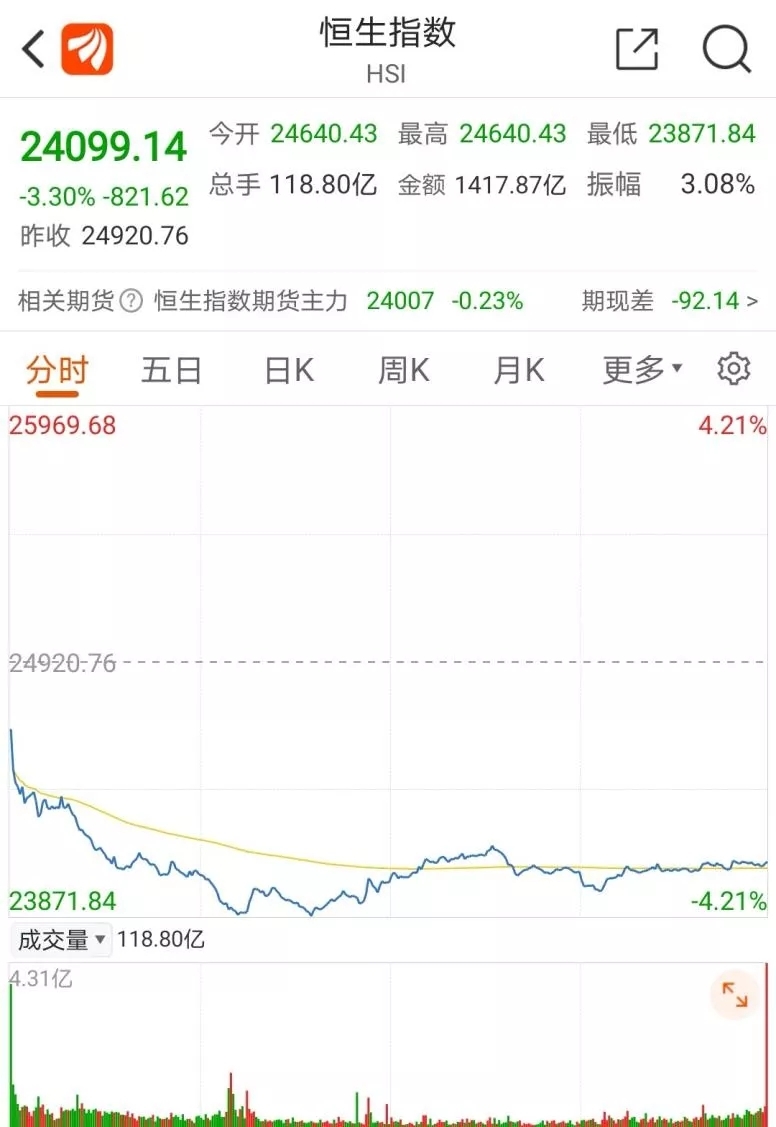Daily economic news
2021-09-21 01:02:51
Every edited Bi Luming
Following the sharp drop in Hong Kong stocks on Monday, the European and American stock markets that opened subsequently were not immune.
During the day on September 20th,Hong Kong’s Hang Seng Index suddenly plummeted by more than 800 points, a drop of 3.3%.A number of sectors fell sharply, and real estate stocks fell even more. At the same time, the Hang Seng Technology Index and financial stocks listed in Hong Kong also fell across the board. The A50 futures index fell even more than 4%.
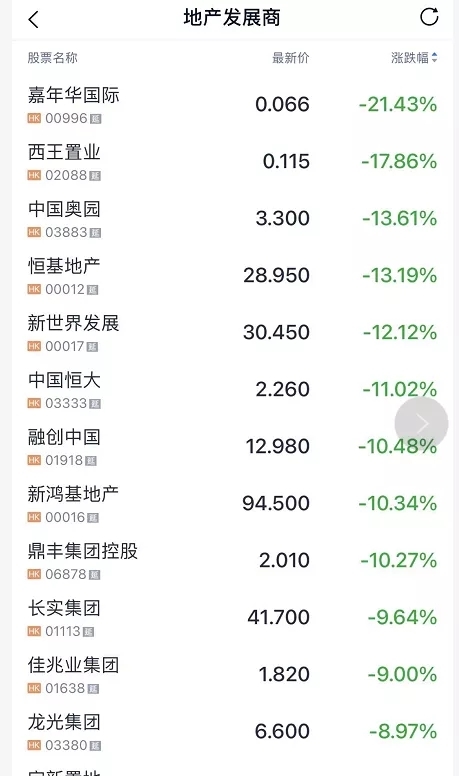
Unexpectedly, the European and American stock markets will encounter another “Black Monday”! As of the close, the German DAX30 index fell 2.34%, the UK FTSE 100 index fell 0.85%, the French CAC40 index fell 1.74%, and the European Stoxx 50 index fell 2.09%.As of press time, U.S. stocks have fallen sharply. Among them, the Dow plunged more than 700 points, a drop of 2%; the Nasdaq plunged more than 370 points, a drop of 2.48%; the S&P 500 fell 89.21 points, a drop of 2.01%. .
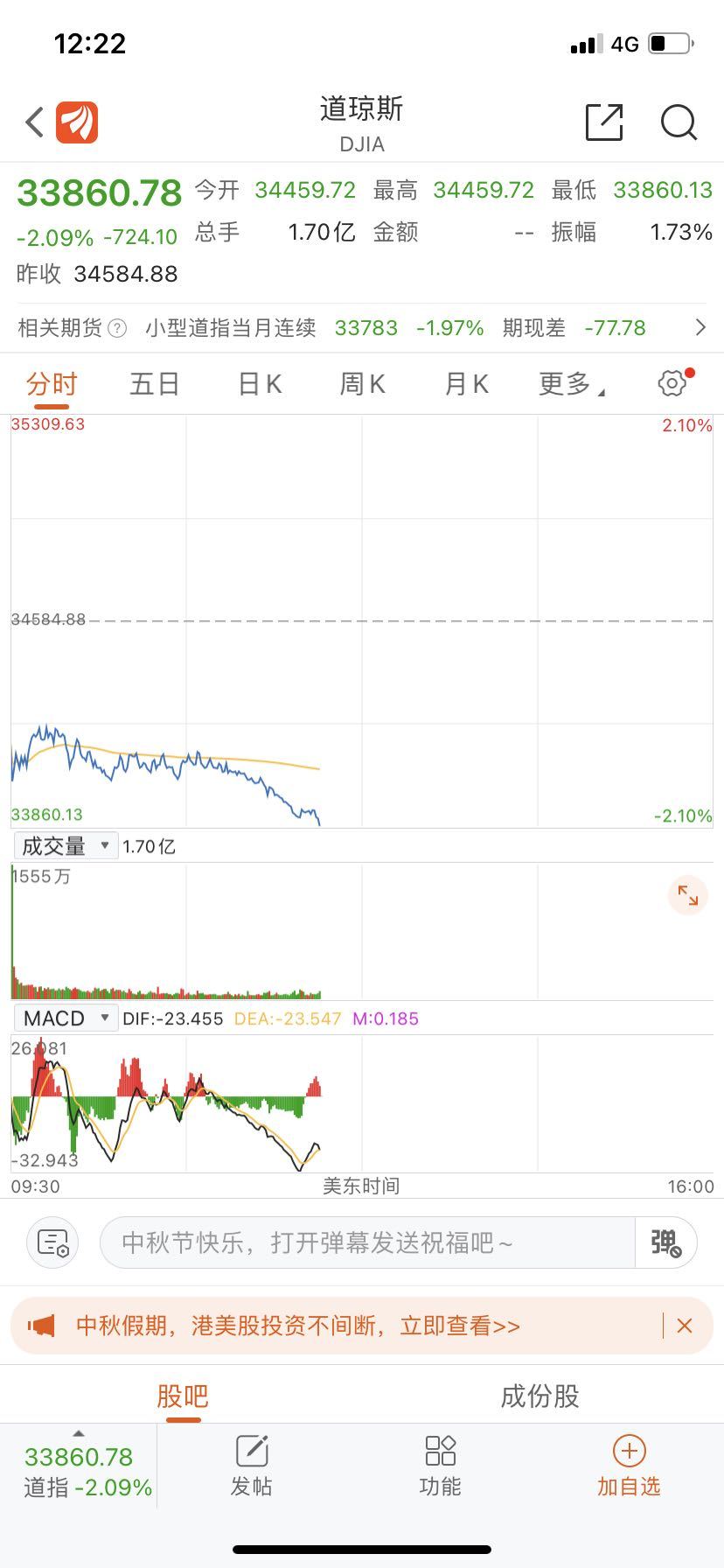
On the 19th local time, U.S. Treasury Secretary Yellen issued a warning that if the U.S. Congress does not quickly raise the federal government’s debt ceiling or suspend its effectiveness, the federal government may default on debt in October this year, which is likely to trigger a “historical financial crisis.” The crisis” has exacerbated the economic damage caused by the new crown epidemic; debt defaults may also trigger a surge in interest rates, a sharp drop in stock prices and other financial turmoil.
European and American stock markets and oil prices plunged collectively
On Monday, the Hong Kong stock market took the lead in a sharp drop. The Hang Seng Index fell more than 1,000 points (a drop of more than 4%), and finally closed down 3.3%. Among them, real estate stocks fell the worst, Sony Holdings Group plummeted 87%, China Evergrande, Sunac China, Evergrande Property, New World Development, World Trade Services, etc. fell more than 10%; the market is worried about the exposure risk of the real estate industry, As a result, financial stocks also fell. China Merchants Bank fell more than 9%, and China Merchants Securities, Minsheng Bank, Ping An, Chongqing Bank, and Guotai Junan all fell more than 5%.
Following the sharp decline in Hong Kong stocks, European stock markets opened lower across the board, and the decline intensified after the opening. The German DAX index fell by more than 3% at one time. As of the close, the German DAX index fell 2.34%, the French CAC40 index fell 1.96%, and the UK FTSE 100 index fell 0.95%.
International oil prices and cryptocurrencies also plummeted collectively. In the intraday trading day, US Oil and Bursa Oil once fell more than 2%.
The panic index rose more than 23%.
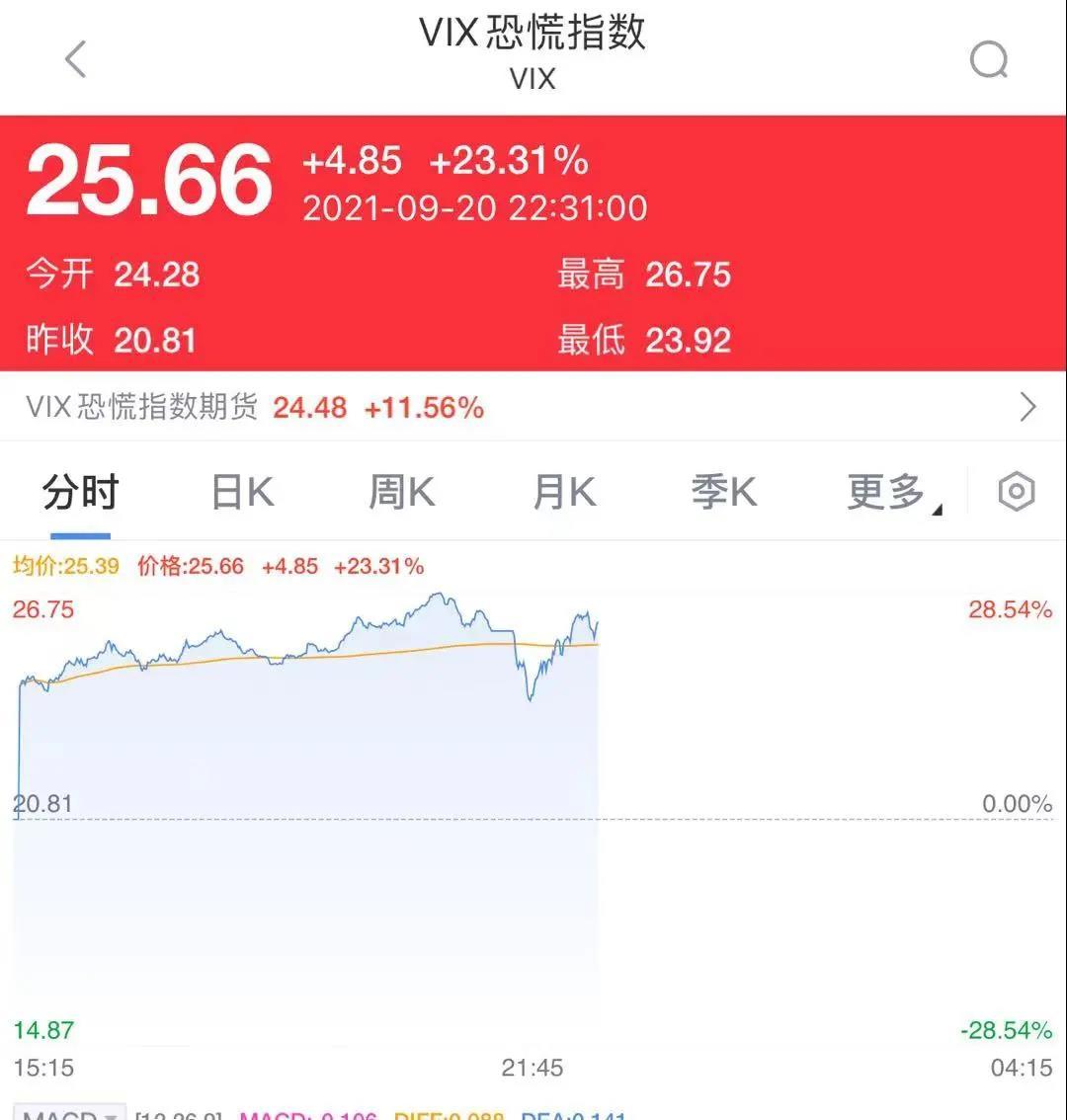
The U.S. stock market that opened later was not spared either. On Monday, the three major U.S. stock indexes collectively opened lower. As of press time, the Dow Jones Index fell 723 points, or 2.09%; the S&P 500 Index fell 96.34 points, or 2.17%; Nasdaq. The composite index fell 409 points, or 2.73%. The oil, steel, banking, investment banking, and coal sectors were among the top decliners.
As of 23:30 pm on September 20, Beijing time, US technology stocks generally fell. Nvidia and Tesla fell more than 3% during the session, and TSMC and Intel fell more than 2%.
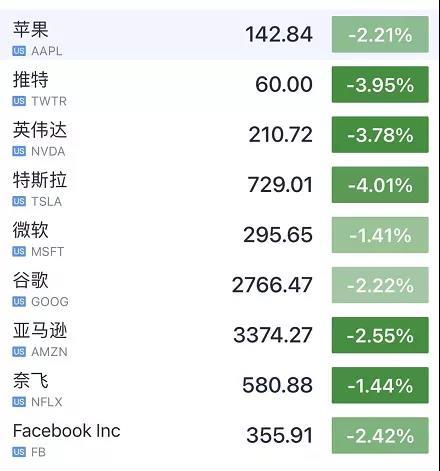
Popular Chinese concept stocks fell collectively. Shell fell by more than 10%, Tencent Music fell by more than 6%, Pinduoduo fell by 5%, and JD.com fell by more than 4%.
Ideal cars fell nearly 6%, and the company said that due to the slower-than-expected recovery of chip supply, it lowered its car deliveries in the third quarter to approximately 24,500. In addition, Xiaopeng Motors fell nearly 5%, and Weilai Motors fell nearly 5%.
Yellen issued a warning
On September 20, according to CCTV news, Yellen stated in an article published on the US Wall Street Journal website on the 19th that if Congress does not raise the debt ceiling or suspend it in effect, the cash balance of the US Treasury Department will fall in October. If the level is insufficient, the federal government will be unable to pay the bills and the United States will default on debt. Economists of the Democratic and Republican parties and officials of the Treasury Department have formed an overwhelming consensus on this, believing that this will cause widespread “economic disaster.”
Yellen warned that the US government debt default is likely to trigger a “historical financial crisis” and exacerbate the economic damage caused by the new crown epidemic; debt defaults may also trigger a surge in interest rates, a sharp drop in stock prices and other financial turmoil. In addition, the current US economic recovery may be reversed into a recession, losing billions of dollars in economic growth and millions of jobs.
The debt ceiling is the maximum amount of debt set by the US Congress for the federal government to meet the payment obligations that have been incurred. Reaching this “red line” means that the US Treasury Department has exhausted its borrowing authorization. According to the cross-party budget bill passed by the U.S. Congress in 2019, the federal government’s debt ceiling was reinstated on August 1 this year after a two-year suspension.
Earlier, Yellen warned that the United States may face the risk of defaulting on government debt in October. According to Xinhua News Agency’s report on September 8, US Treasury Secretary Yellen warned on the 8th that if Congress does not pass legislation to raise the federal government’s debt ceiling or suspend its effectiveness as soon as possible, the United States is likely to face the risk of government debt default in October this year.
Yellen wrote in a letter to the leaders of the Democratic and Republican parties of Congress that day, since the federal government’s debt limit was restored on August 1, the Treasury Department has begun to take unconventional measures to provide temporary financing for the federal government. The cash and unconventional measures held by the Ministry are likely to be exhausted in October, when the US government will not be able to fulfill its payment obligations.
Yellen said that the past debt ceiling deadlock has shown that congressional delays may seriously damage business and consumer confidence, push up short-term financing costs, and may have a negative impact on the US credit rating, causing irreversible effects on the US economy and global financial markets. s damage. She urged Congress to take action as soon as possible to raise the debt ceiling or suspend its effectiveness.
The debt ceiling is the maximum amount of debt set by the U.S. Congress for the federal government to meet the payment obligations that have been incurred. At present, the debt of the US federal government has exceeded 28.7 trillion US dollars.
It is worth mentioning that, according to CCTV news, on September 20, local time, the White House Coordinator of Covid-19 Response Jeffrey Zients (Jeffrey Zients) said that the United States will cancel the fully vaccinated international travelers in November. Restrictions, ending the travel ban previously implemented to limit the spread of the new crown virus.
Zienz emphasized that international passengers need to provide a record of having been fully vaccinated against the new coronavirus before boarding, and show a negative test for the new coronavirus within three days before arriving in the United States. Americans who have not received the new crown vaccine must be tested the day before departure into the United States, and tested again after arrival. The new policy only applies to air travel and does not apply to land transit. At present, the White House has not announced whether it has specific requirements for the type of vaccination for foreign travelers.
The market pays attention to the Fed’s meeting on interest rates, or gives the latest Taper signal
The capital market is becoming more and more sensitive to the Fed’s movements, and the U.S. stock market has been pulling back for several consecutive days recently.
According to Brokerage China, the Fed’s September interest rate meeting will be held this Tuesday (September 21) and Wednesday (September 22). This meeting is very critical. The Fed will release the latest economic forecasts and interest rate hike dot matrix. picture. Although the time window for the Fed to issue the September Taper signal has been closed, the meeting may suggest that Taper will issue an announcement in November or December.
The interviews of 52 economists by foreign financial institutions showed that 67% of economists believed that the Fed would announce a reduction in the scale of bond purchases (Taper) in November, and 21% believed that it would be in December. Economists generally believe that the Fed will maintain interest rates near 0% in 2022 and is increasing it by 50 basis points in 2023.
Galaxy Securities analysts Liu Dan and Li Zhuorui believe that even if affected by the epidemic, the pace of QE Taper will not be hindered, and the Fed will take measures to reduce the scale of bond purchases before the end of 2021. However, interest rate hike expectations are temporarily suppressed, and the Fed will guide the market to raise interest rate expectations after the epidemic is controlled.
The Fed is likely to raise interest rates in the second half of 2022. Asset performance will still be dominated by stocks, and the expected tightening of marginal liquidity will affect market sentiment and market volatility will increase.
Daily Economic News Comprehensive CCTV News, Xinhua News Agency, Meijing.com, Brokerage China
(Every time this article is posted on the App for the purpose of transmitting more information, it does not mean that it agrees with its views or confirms its description. The content or data of the article is for reference only and does not constitute investment advice. Investors operate accordingly at their own risk .)
Cover image source: Photograph.com
